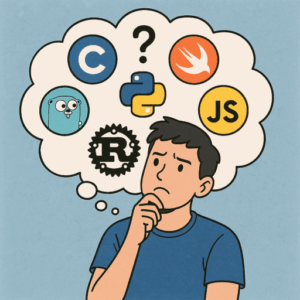Can philosophy help us in our work and technological business? I just finished reading (in Italian): Contemplative Life: In Praise of Inactivity by Byung-Chul Han, a passage that struck me is this (i personally translated it from Italian). “Today the mass is losing its meaning. It is no coincidence that we speak of a “society of singularities”, evoking creativity and authenticity. Everyone believes they are unique. Everyone must tell their own story. Everyone puts themselves on stage. And so active life is expressed as performative life. The emphasis on the New is rekindled: the New must facilitate an intense life; the Old arouses skepticism. And even the so-called start-ups evoke creativity and innovation, promising the New.”
If on the one hand I think this passage can immediately evoke a clear reference to social media, where everyone tries to be different from the others, to give something unique, on the other it made me think of the world of start-ups and technological innovations that involve everyone and especially those who like me are immersed in this world. I wonder if start-ups really fail at this point due to a lack of market-fit, capital and other things that we usually read and tell ourselves or simply contain a New that does not improve the old.
The new for the new is useless. We can see it also with programming languages, I often jokingly say that there are more languages than developers. Do we really need it? Or does the search for the new, cooler thing make us lose sight of the essence and poetry of our work (let it be clear that some tools have improved our work and others will improve it even more)?
The Italian version
Può la filosofia aiutarci nel nostro lavoro e business tecnlogico? Ho appena finito di leggere (in versione italiana) Vita Contemplativa: In Praise of Inactivity di Byung-Chul Han, un brano che mi ha colpito è questo (l’autore mi perdonerà la traduzione dall’italiano):
Oggi la massa sta perdendo di significato. Non a caso si parla di “società delle singolarità”, evocando creatività e autenticità. Ognuno crede di essere unico. Ognuno deve raccontare la propria storia. Ognuno si mette in scena. E allora la vita attiva si esprime come vita performativa. L’enfasi sul Nuovo viene riattizzata: il Nuovo deve agevolare una vita intensa; il Vecchio suscita scetticismo. E anche le cosiddette start up evocano creatività e innovazione, promettendo il Nuovo.
Se da un lato questo brano penso possa subito suscitare un chiaro riferimento ai social network, dove ognuno cerca di essere diverso dagli altri, di dare qualcosa di unico, dall’altro mi ha lasciato pensare al mondo delle start-up e delle novità tecnologiche che coinvolgono tutti e soprattutto quelli che come me sono immersi in questo mondo. Mi chiedo se davvero le start-up a questo punto falliscano per mancanza di market-fit, capitali ed altre cose che siamo soliti leggere e raccontarci o se invece banalmente contengono un Nuovo che non migliora il vecchio. Il nuovo per il nuovo non serve a nulla. Lo possiamo vedere anche con i linguaggi di programmazione, spesso scherzando dico che ci sono più linguaggi che sviluppatori. Ne abbiamo davvero bisogno? O la ricerca della cosa nuova, più figa, ci fa perdere di vista l’essenza e la poesia del nostro lavoro (sia chiaro che alcuni strumenti hanno migliorato il nostro lavoro e altri lo miglioreranno ancora)?




